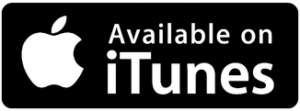Are you someone who is looking to transition into law? In this engaging podcast episode, Jim and Tyson sit down with Bill Gshwind of Minnesota Construction Law, who shares his unique journey into law after a 25-year tenure in business.
In this episode, Jim and Tyson interview Jason Selk. Jason is considered to be one of the top performance coaches in the United States; he trains individuals and teams to develop the mental toughness necessary for high-level success. They will go over the importance of having a performance mindset in your life and your business, and how mental toughness can help you grow your firm.
[smart_track_player url="http://traffic.libsyn.com/maximumlawyer/Episode_110.mp3" social_linkedin="true" ]
Are you fighting it out to the very end?
The importance of confidence: The perfectionist mindset VS. the performance mindset.
Self confidence is the number one variable for all performers. What that perfectionist mentality does, is it really takes its toll on a person self confidence. If I keep thinking about that error or that missed opportunity, and not focusing also on the things I’ve done well, my confidence is gonna take a beating. We try to train people to develop the performance mentality, that it’s about recognizing what you have done well and relentlessly improving.
“Highly successful people NEVER get anything done in one given day, but what they do is, ALWAYS get their most important activities done each and every day.”
Plateaus in business
“Plateaus will happen. There will be times where you’re kind of in that phase of doing the work and not seeing the immediate results, but if you stay with it: 30, 60, 90 days, nailing your one most important and usually getting the 3 most important done each day, you are probably gonna find plateaus don’t last very long; that you find ways to keep moving it to the next level.”
The mindset of saying no
The first step to saying no is evaluating where your time and energy are going, and in terms or relevance, what’s most important? If right now you are feeling overwhelmed, the next step is to eliminate 10% to 20% of what you are currently doing. The third step, is moving forward. The next time anyone ask you something, before saying yes, identify what will you say no to.
Don’t overload yourself. Prioritize.
Hacking’s hack: Have a podcast!
Jason’s tip: Go back to the 3 most important and 1 must. Identify your 3 most important activities and of that 3 what’s the one most important activity that must get done every day.
Tyson’s tip:
- If you ever had problems downloading and viewing .ZIP files, there’s an app called Browser. The icon is an arrow pointing down.
- Get the book Organize your team today.
//
Thanks so much for listening to the show! If you want to know more about this and keep on maximizing your firm, please join our Facebook Group or like us on Facebook and comment!
You can also go to MaximumLawyer.com or, if you’d prefer, email us at: [email protected]
Do you want to get on the show? Shoot us an email or message us!
The Maximum Lawyer Podcast. Partner up, and maximize your firm.
Guild Membership
Free Access to Stage 1 of Maximum Lawyer in Minimum Time
Sign Up Today!Customer Reviews
4.9 out of 5
Join Our Facebook Group
Enjoy Exclusive Access To Stage One Of The Maximum Lawyer In Minimum Time Course
Privacy Policy
This privacy policy has been compiled to better serve those who are concerned with how their ‘Personally Identifiable Information’ (PII) is being used online. PII, as described in US privacy law and information security, is information that can be used on its own or with other information to identify, contact, or locate a single person, or to identify an individual in context.
Please read our privacy policy carefully to get a clear understanding of how we collect, use, protect or otherwise handle your Personally Identifiable Information in accordance with our website.
What personal information do we collect from the people that visit our blog, website or app?
When ordering or registering on our site, as appropriate, you may be asked to enter your name, email address or other details to help you with your experience.
When do we collect information?
We collect information from you when you register on our site, place an order, subscribe to a newsletter, Use Live Chat, Open a Support Ticket or enter information on our site.
How do we use your information?
We may use the information we collect from you when you register, make a purchase, sign up for our newsletter, respond to a survey or marketing communication, surf the website, or use certain other site features in the following ways:
- To personalize your experience and to allow us to deliver the type of content and product offerings in which you are most interested.
- To improve our website in order to better serve you.
- To allow us to better service you in responding to your customer service requests.
- To quickly process your transactions.
- To send periodic emails regarding your order or other products and services.
- To follow up with them after correspondence (live chat, email or phone inquiries)







